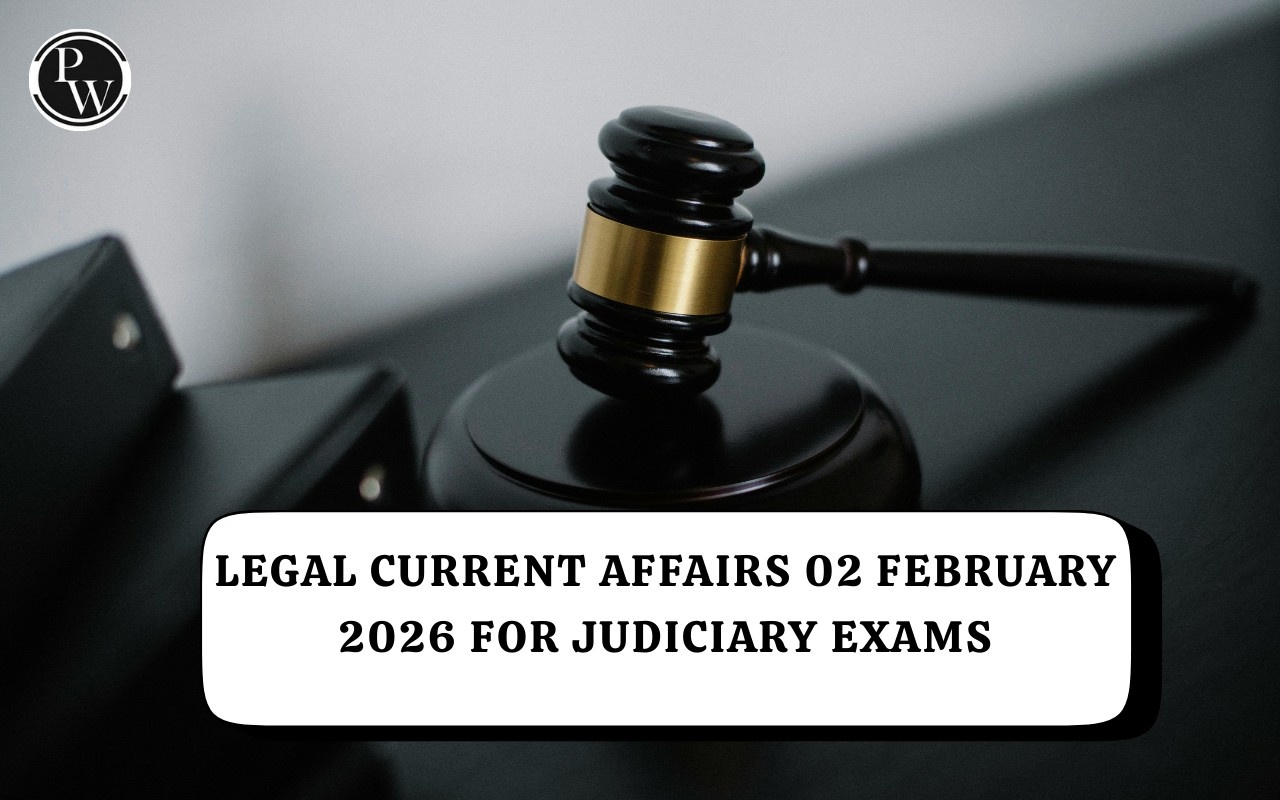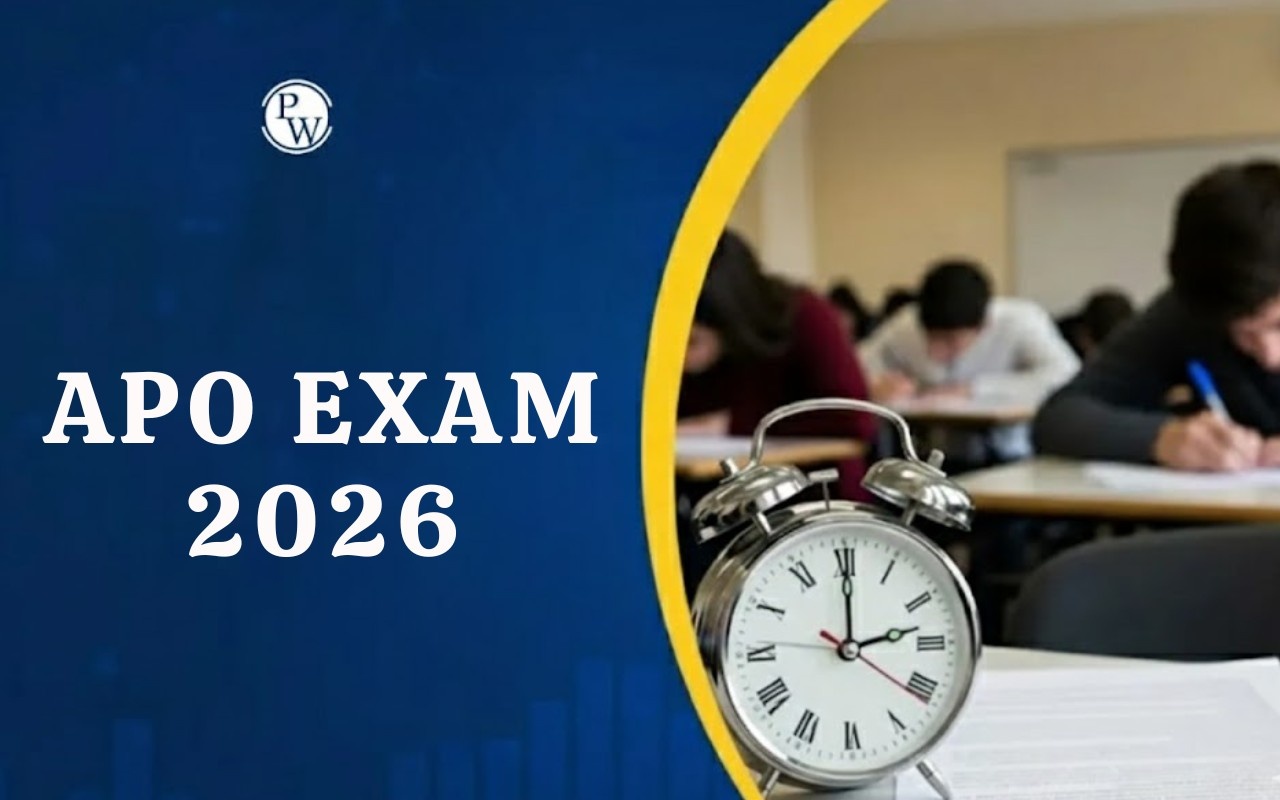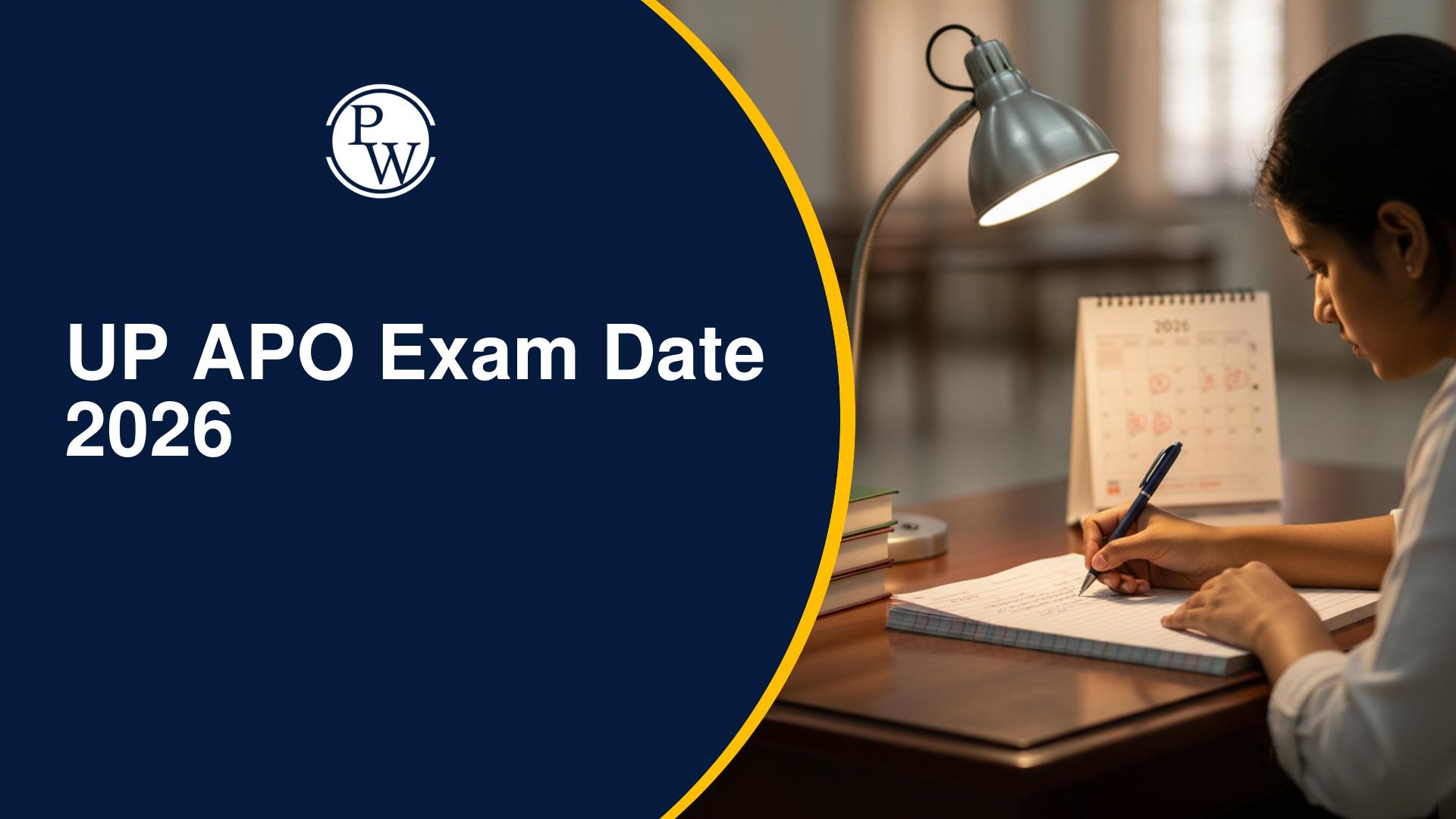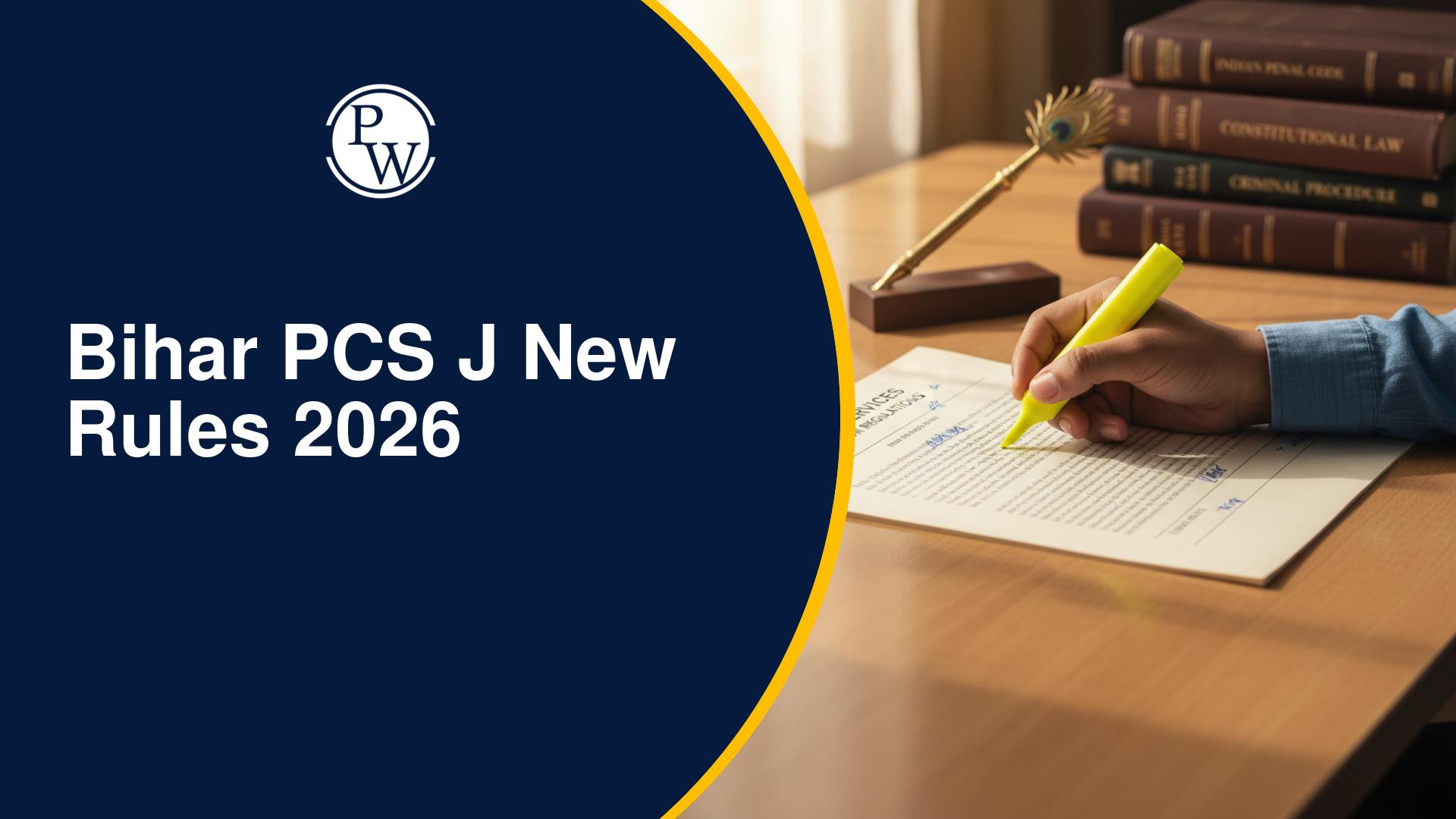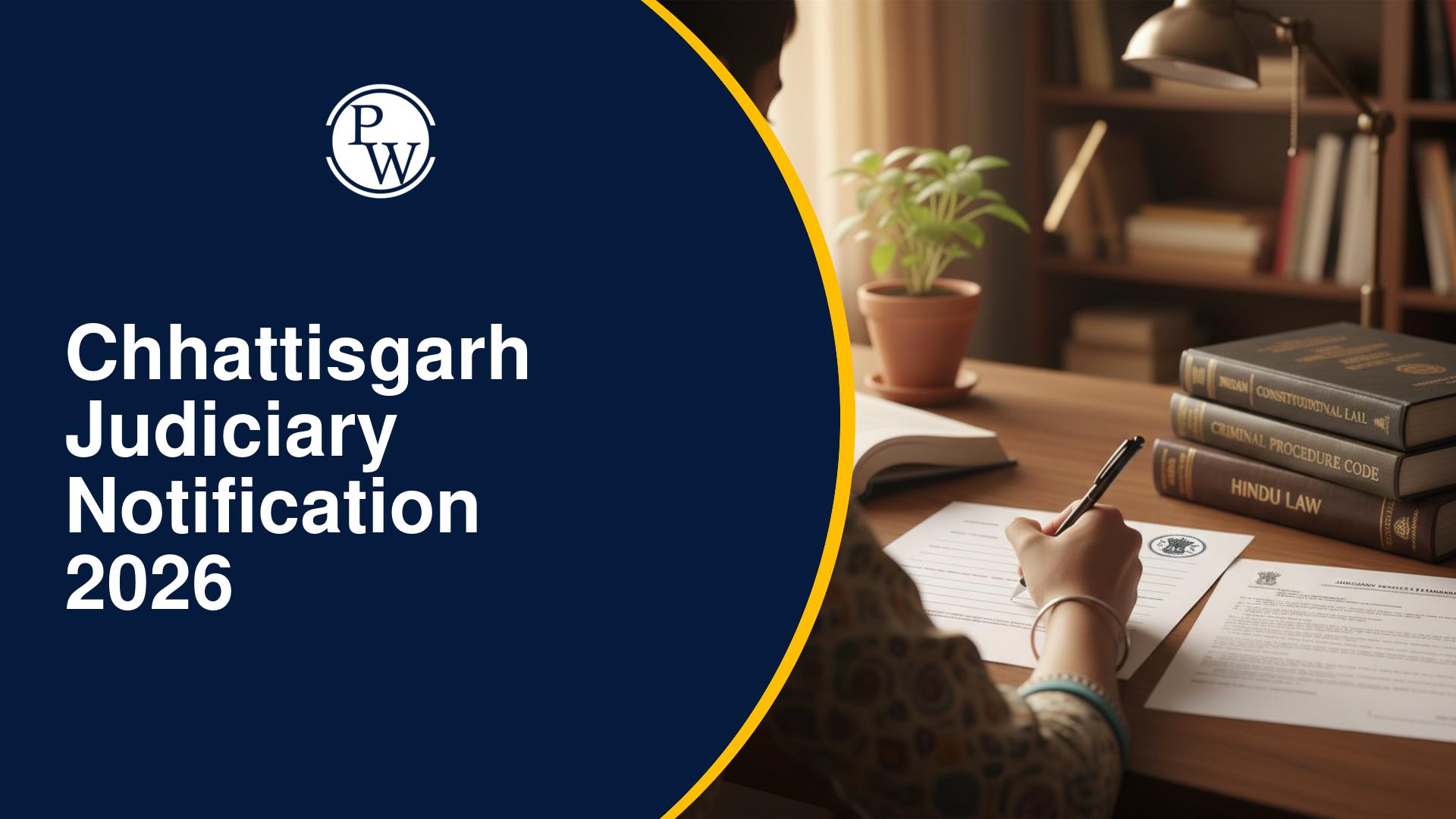
The Odisha Judicial Services Syllabus 2025 serves as a guide to help individuals prepare for judicial jobs through the Odisha Public Service Commission (OPSC). It informs candidates about the topics to study and what to expect in the exam.
Knowing the latest syllabus and exam pattern is crucial for aspirants to prepare well. Here, you can find the detailed information about the Odisha Judicial Exam Syllabus 2025 for all parts of the test – Preliminary, Mains, and Interview. The syllabus PDF will also be available to download soon after the official announcement.
Odisha Judicial Services Syllabus 2025 Overview
The Odisha Judicial Services Syllabus 2025 has been officially released by the Odisha Public Service Commission (OPSC) for candidates preparing to become Civil Judges in the state judiciary.
The first step to preparing well is knowing the detailed syllabus and exam pattern. We offer a clear overview of the Odisha Judicial Services Syllabus 2025, with topics for both the Prelims and Mains exams, the exam format, study tips, and book suggestions to make your preparation easier and more organized.
|
Odisha Judicial Services Syllabus 2025 Overview |
||
|
Exam Stage |
Subject/Topics Covered |
Details |
|
Preliminary Exam |
Constitution of India, Code of Civil Procedure, Code of Criminal Procedure, Evidence Act, Indian Penal Code, Limitation Act, Transfer of Property Act, Contract Act, Law of Succession, Specific Relief Act |
Objective-type questions, 100 marks, 1.5 hours, negative marking applicable. |
|
Main Exam (Compulsory Papers) |
Paper 1: General English — Essay, Precis writing, Grammar; Paper 2: Procedural Laws |
Tests language proficiency, legal procedures. Each paper: 150 marks, 2.5 hours duration. |
|
Main Exam (Optional Papers) |
Optional Papers on substantive laws, including Civil Procedure, Criminal Law, Contract Law, Indian Evidence Act, Law of Torts, Hindu Law, Mohammedan Law, etc. |
Three optional papers, each 150 marks, 3 hours each. |
|
Interview |
Personal Interview |
Tests personality and suitability for judicial service. |
Odisha Judicial Services Syllabus 2025 For Prelims
The Odisha Judicial Services Syllabus 2025 covers a broad range of fundamental legal topics, such as the Constitution, procedural laws, substantive laws, and legal principles.
The Preliminary Exam is a screening test consisting of 100 multiple-choice questions. Each correct answer carries 1 mark with negative marking for wrong answers. Here is a detailed breakdown of the OJS Syllabus 2025 by subject to assist you in your preparation:
|
Odisha Judicial Services Syllabus 2025 for Prelims |
|
|
Subject |
Syllabus Details |
|
Constitution of India |
- Meaning of Constitution, Sources, Constitutional History - Features: Citizenship, Preamble, Fundamental Rights & Duties, Directive Principles of State Policy - Union Government & Administration: Structure of Indian Union, Federalism, Centre-State Relations, President (Role, Power, Position), PM & Council of Ministers, Cabinet & Central Secretariat, Lok Sabha, Rajya Sabha - State Government & Administration: Governor (Role & Position), CM & Council of Ministers, State Secretariat (Organization, Structure, Functions) - Local Administration: District Administration (Head, Importance), Municipalities (Mayor, Elected Representatives, CEO), Panchayati Raj Institutions (Zila Panchayat, Block level hierarchy, Village level roles), Importance of grassroots democracy - Election Commission: Role, Functioning, Chief Election Commissioner, State Election Commission, Welfare bodies for SC/ST/OBC and women |
|
Code of Civil Procedure |
- General Suits: Definitions (Decree, Judgment, Parties, Pleadings, Costs, Interest) - Jurisdiction of Courts (Subject, Territorial, Pecuniary) - Concepts: Res subjudice, Res judicata, Foreign Judgments - Pleadings: Plaint, Written Statement, Set-off, Counter-claim - Trial and Execution: Summons, Witness attendance, Injunctions, Arrest & Attachment before judgment, Execution of decrees - Appeals, Reference, Review, Revision: Procedures and powers - Special suits: Suits involving minors, indigents, Government - Limitation Act (Sections 1-27): Bar of limitation, Legal disabilities, acquisition/extinguishment of rights by limitation |
|
Code of Criminal Procedure |
- Arrest: Meaning, with/without warrant, by private persons, special provisions for women - Search & Seizure: With/without warrant, legality and consequences - Investigation: Meaning, police powers, FIR procedure, evidentiary value, unnatural deaths, police custody - Bail: Concept, constitutional overtones, mandatory/discretionary bail, anticipatory bail - Charge: Framing, content, separate charges, discharge - Trials: Court of session, warrant cases, summons cases, summary trials - Appeal, Reference, Revision, Transfer: Provisions and jurisdiction - Maintenance of wives, children, parents: Conditions, jurisdiction, alteration, cancellation |
|
Evidence Act |
- Doctrines: Res gestae, Conspiracy, Plea of alibi - Relevant facts and Sections: 7,8,9,12-16,34,42-44 - Admission, Confessions (Ss. 28-31), Dying Declaration - Evidence relevance for subsequent facts (S.33), Expert testimony, Opinion of 3rd persons - Character evidence, Oral & Documentary evidence (Ss. 59-65), Public vs Private documents - Presumptions (Ss. 79,80,85-85C, 88A, 90, 90A) - Exclusion of oral by documentary, ambiguous documents - Burden of proof, Estoppel, Witnesses, Privileged communications - Accomplice, Examination of witnesses (Ss. 136-140, 143-153, 155) - Leading questions (Ss. 141,142), Hostile witness (S.155), Refreshing memory (S.159) |
|
Indian Penal Code |
- Essential elements of crime: Actus Reus, Mens Rea, stages of crime - General explanations, punishments, general exceptions - Abetment - Offences: Hurt & grievous hurt, wrongful restraint & confinement, theft, extortion, robbery, dacoity - Criminal misappropriation & breach of trust, receiving stolen property, cheating - Mischief & criminal trespass - Document-related offences - Marriage-related offences: Bigamy, adultery, cruelty - Crimes against women - Criminal intimidation, insulting modesty of women, defamation - Attempt to commit offences |
|
Limitation Act |
- Definitions (decree, judgment, cause of action, etc.) - Jurisdiction of courts (subject matter, territorial, pecuniary) - Concepts: Res subjudice, res judicata, foreign judgment - Parties and framing suits, pleadings (Orders VI to VIII) - Appearance and default dismissal - Costs and interest, filing caveat - Summons, witness attendance - Withdrawal and adjustment of suits - Examination of parties - Temporary & permanent injunctions - Arrest and attachments before judgment - Execution of decrees - Appeals: first, second, Supreme Court - Reference, review, revision, inherent powers - Suits involving minors, unsound mind, indigents, Government - Legal bars and extensions of limitation (Ss. 1-27) |
|
- Movable & immovable property - Instrument, attestation, registration - Attached to earth, actionable claims, notice - Transfer: meaning, elements, types of property transferable - Restrictions on alienation & enjoyment - Transfer to unborn persons - Rule against perpetuity, vested & contingent interests - Conditional transfers, ulterior transfer - Doctrines: election, apportionment, holding out, estoppel, priority, lis pendens, part performance - Mortgages: types, right to redeem, foreclosure/sale, priority, marshalling, contribution, subrogation, charges |
|
|
Contract Act |
- Contract: Meaning, nature, types, historical background - Indian Contract Act, 1872 overview - Major definitions - Formation: proposal, acceptance, intention, communication, revocation - Legal disabilities (minors, unsound mind, disqualified persons), effects - Consent: free consent, coercion, undue influence, misrepresentation, mistake - Consideration: meaning, nature, exceptions, adequacy, legality - Legality of object, void & voidable agreements, agreements against public policy - Restraints: marriage, trade, legal proceedings - Uncertain and ambiguous agreements, wagering agreements - Contingent contracts - Performance & discharge of contracts: novation, remission, accord & satisfaction, appropriation, impossibility, breach - Specific relief: recovery of possession, specific performance, injunctions, declaratory and preventive reliefs |
Odisha Judicial Services Syllabus 2025 For Mains
The Mains examination is descriptive in nature and consists of two compulsory papers and three optional papers.
Compulsory Paper
The Odisha Judicial Service (OJS) syllabus consists of two mandatory papers aimed at assessing a candidate’s skills in language and procedural law. Detailed syllabi for each of these compulsory papers are provided below:
|
Odisha Judicial Services Syllabus 2025 for Mains - Compulsory Paper |
|
|
Paper |
Syllabus |
|
Paper-1 General English |
|
|
Paper-2 Procedural Laws |
|
Optional Paper
Besides the compulsory papers, candidates are required to select three optional papers from a set of five subjects in the Odisha Judicial Services Syllabus 2025 for Mains. Each optional paper assesses the candidate’s in-depth knowledge of particular legal areas. The detailed syllabus for each optional paper is outlined below:
|
Odisha Judicial Services Syllabus 2025 for Mains - Optional Paper |
|
|
Name of the Paper |
Syllabus |
|
Paper-1 (Law of Crime and Law of Torts) |
Law of Crime and Law of Torts |
|
Paper-2 (Personal Law) |
|
|
Paper-3 (Law of Property) |
|
|
Paper-4 (Law of Contract) |
|
|
Paper-5 (Jurisprudence and Constitution of India) |
Jurisprudence and the Constitution of India |
Odisha Judicial Services Exam Pattern 2025
If you are applying for the Odisha Judicial Service Exam, you will need to clear three stages: the Preliminary Exam, the Main Exam, and the Interview. It is important to understand the pattern of each exam so you know how much weight each topic carries. Here is a breakdown of the Odisha Judicial Services Exam Pattern 2025:
Odisha Judicial Services Prelims Exam Pattern 2025
This exam has 100 questions, each worth 1 mark, and lasts 1 hour and 30 minutes. If you answer a question wrong, 0.25 marks will be deducted.
To move on to the next stage, SC/ST candidates need at least 35%, and others need 40% marks to qualify.
The questions will cover topics like the Constitution of India, Civil and Criminal Procedure Codes, Evidence Act, Indian Penal Code, Limitation Act, Property Law, Contract Law, Succession Laws, and Specific Relief Act.
|
Odisha Judicial Services Prelims Exam Pattern 2025 |
|||
|
Subject |
No. of Questions |
Total Marks |
Duration |
|
Constitution of India |
100 |
100 |
1 hour 30 mins |
|
Code of Civil Procedure |
|||
|
Code of Criminal Procedure |
|||
|
Evidence Act |
|||
|
Indian Penal Code |
|||
|
Limitation Act |
|||
|
Transfer of Property Act |
|||
|
Contract Act |
|||
|
Law of Succession (Indian Succession Act and Hindu Succession Act) |
|||
|
Specific Relief Act |
|||
Odisha Judicial Services Mains Exam Pattern 2025
The Odisha Judicial Services Main Exam consists of two parts—compulsory papers and optional papers.
-
Compulsory Papers: Two papers, each for 150 marks, with a duration of 2 hours 30 minutes each. Paper 1 focuses on General English, including translation between English and Odia, essay writing, precis, and comprehension.
-
Paper 2 covers Procedural Laws like Criminal Procedure, Civil Procedure, and the Evidence Act.
|
Odisha Judicial Services Mains Exam Pattern 2025 (Compulsory Paper) |
||||
|
Paper |
Subject |
Details |
Marks |
Duration |
|
Paper-1 |
General English |
- Translation and retranslation of ten lines - A short essay - Precis writing (300 words) - Passage with questions |
150 marks |
2 hours 30 mins |
|
Paper-2 |
Procedural Laws |
- The Code of Criminal Procedure, 1973 - The Code of Civil Procedure, 1908 - The Indian Evidence Act |
150 marks |
2 hours 30 mins |
|
Total |
300 |
- |
||
-
Optional Papers: You choose any 3 subjects from a list. Each paper is for 150 marks and lasts 3 hours.
-
You need an overall 45% aggregate and at least 33% in each paper to qualify for the interview.
-
The options include subjects like Law of Crimes & Torts, Personal Laws (Hindu and Mohammedan), Property Law, Contract Law, and Jurisprudence with the Constitution of India.
|
Odisha Judicial Services Mains Exam Pattern 2025 (Optional Paper) |
|||
|
S. No |
Subject |
Total Marks |
Duration |
|
1 |
Law of Criminal & Law of Torts |
150 marks |
3 hours |
|
2 |
Personal Law |
150 marks |
3 hours |
|
- Hindu Law |
|||
|
- Mohammedan Law |
|||
|
3 |
Law of Property |
150 marks |
3 hours |
|
- Transfer of Property, 1982 |
|||
|
- Specific Relief Act, 1963 |
|||
|
- Indian Limitation Act, 1963 |
|||
|
4 |
Law of Contract |
150 marks |
3 hours |
|
- Indian Contract Act, 1872 |
|||
|
- Sales of Goods Act, 1930 |
|||
|
- Partnership Act, 1932 |
|||
|
- Negotiable Instruments Act, 1881 |
|||
|
5 |
Jurisprudence and the Constitution of India |
150 marks |
3 hours |
Odisha Judicial Services Syllabus 2025 Preparation Tips
The Odisha Judicial Services exam preparation requires a well-planned strategy focusing on the Preliminary, Mains, and Interview stages. Here are the key preparation tips for 2025:
Preliminary Exam Preparation
-
Focus primarily on Bare Acts, as questions are directly from the bare text of laws.
-
Regular reading and revision of Bare Acts is essential for quick recall.
-
Build a strong foundation by understanding statutory provisions thoroughly.
Mains Exam Preparation
Develop an in-depth understanding of subjects including the Indian Penal Code, Criminal Procedure Code, Code of Civil Procedure, Indian Evidence Act, Constitution of India, Transfer of Property Act, and relevant local laws.
-
Make comprehensive notes and focus on writing clear, concise, and well-structured answers.
-
Practice answer writing under timed conditions to enhance speed and accuracy.
-
Prepare model essays, precis writing, and translations for the English paper.
-
Stay updated with recent Supreme Court and High Court landmark judgments.
-
Engage in test series to refine preparation and boost confidence.
Interview Preparation
-
Focus on personality development and communication skills.
-
Practice mock interviews, including frequently asked questions.
-
Prepare a concise introduction and polite greetings for the interview
Explore the Judiciary Coaching 2025 to access essential resources for Judiciary exam preparation, including detailed insights and strategies. Dive into the Judiciary 2025 for structured courses and focused study plans designed to help aspirants excel in their exams.
